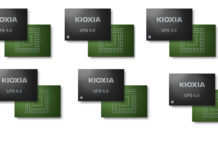Data streamer Confluent announced that its Flink service is now available on AWS, Google Cloud, and Microsoft Azure. The cloud-native service enables reliable, serverless stream processing, which allows customers like Airbnb, Uber, and Netflix to gain timely insights from live data streams. This helps them to offer consumers real-time services – from personalized recommendations to dynamic pricing. It also announced the release of Tableflow, software that unites analytics and operations with data streaming in a single click to feed data warehouses, data lakes, and analytics engines.
…
NoSQL cloud database supplier Couchbase announced financial results for its fourth quarter and fiscal year ended January 31. Total revenue for the quarter was $50.1 million – an increase of 20 percent year-over-year, with a net loss of $21.4 million. Subscription revenue for the quarter was $48.1 million – an increase of 26 percent year-over-year. Total revenue for the year was $180 million – an increase of 16 percent year-over-year, with a loss of $80.2 million. Subscription revenue for the year was $171.6 million, an increase of 20 percent year-over-year. It expects next quarter’s revenue to be $48.1-$48.9 million.
…
Decentralized storage provider Cubbit announced general availability of its DS3 Composer, which is used to build virtual private S3-compatible public clouds. It uses DS3 technology – a multi-tenant, S3-compatible object store developed by Cubbit. DS3 Composer collects and aggregates new and recycled resources across the edge, on-prem, and public cloud – exposing them as an S3 object store repository via a SaaS control plane. Resources are organized in geo-distributed networks, and each network node can provide access and capacity via the S3 protocol. Cubbit has technology partnerships with HPE and with Equinix.
…
Mainframe supplier Fujitsu and Amazon Web Services (AWS) announced an expanded partnership to provide assessment, migration, and modernization of legacy mission critical applications running on on-premises mainframes and Unix servers onto the AWS Cloud.
…
NAKIVO’s agent-based backup support for Proxmox virtual machine data is now available.

…
NetApp has hired a chief human resources officer – Alessandra Yockelson, with over 25 years of experience – to drive a new chapter of NetApp’s culture and growth globally. She comes from a similar role at Pure Storage, where she led organizational change efforts that resulted in global performance scaling. Before that she was a chief talent officer at HPE. Normally we’d pass over such an appointment and praise, but NetApp describes her as a technology industry titan. What does that mean? We think NetApp is in for enhanced diversity in its hiring practices as it seeks to broaden the talent pool for managers, directors, and execs.
…

Panasas has hired a new CFO, Paul Hiemstra, declaring his role will be instrumental in shaping strategic direction for the executive team and board, ultimately driving profitability, growth, and value creation. Ken Claffey became Panasas CEO in September last year and the biz has been searching for a CFO for three months. Elliot Carpenter was Panasas CFO from March 2016 to August 2020.
Hiemstra’s background includes 11 years at Cray, where he ascended from corporate treasurer to head of investor solutions. In this latter position, he played a pivotal role in the 2019 integration of Cray and HPE, serving as CFO of HPE’s HPC and AI divisions.
…
Earlier this month, Pure Storage announced self-service capabilities across its Pure1 storage management platform and Evergreen portfolio. More than 30 percent of Pure’s customer base uses ActiveCluster. Upgrades to the Purity operating environment for ActiveCluster required time-consuming manual effort, as customers jumped from one upgrade to another in an effort to keep servers in sync. With Autonomous Upgrades, customers can simply invoke a Purity upgrade, leaving the heavy lifting to Pure Storage via its Pure1 platform, and freeing up the time previously spent managing the process themselves.
Also, in the event of a ransomware anomaly, Pure1 now recommends snapshots from which customers can restore their affected data (both locally and remote), eliminating cumbersome, manual snapshot catalog reviews, which can take anywhere from hours to days.
…
Computational storage supplier ScaleFlux says it will integrate the Arm Cortex-R82 processor in its forthcoming line of enterprise Solid State Drive (SSD) controllers, following the newly announced SFX 5016. It says this is a strategic move to leverage the processor’s high performance and energy efficiency. The Cortex-R82, is the highest performance real-time processor from Arm and the first to implement the 64-bit Armv8-R AArch64 architecture, representing, ScaleFlux claims, a significant advancement in processing power and efficiency for enterprise storage systems. Perhaps ScaleFlux computational storage drives will do more than compression in the future.
…
SK hynix has begun volume production of HBM3E, the newest AI memory product with ultra-high performance, for supply to a customer (Nvidia) from late March.
…
Software RAID supplier Xinnor has a white paper titled “High Performance Storage Solution for PostgreSQL Database in Virtual Environment, Boosted by xiRAID Engine and KIOXIA PCIe5 Drives.” The paper presents detailed benchmarking results comparing the performance of different storage configurations, including vHOST Kernel Target with Mdadm and SPDK vhost-blk target protected by Xinnor’s xiRAID Opus (Optimized Performance in User Space). It says xiRAID provides 30–40 percent better transaction per second than Mdadm in select-only benchmarks, outperforms Mdadm by over 20 times in degraded mode, ensuring high performance even in the event of drive failures.
Also xiRAID provides 30–40 percent better transaction per second than Mdadm in select-only benchmarks and demonstrates superior performance in write operations, outpacing Mdadm by six times in small block writes and five times in TPC-B-like script benchmarks. The scalability of xiRAID on virtual machines allows for the consolidation of servers, resulting in significant cost savings and simplified storage infrastructure. Download the white paper here.
…
Open source vector database supplier Zilliz says its Milvus 2.4 release has a groundbreaking GPU indexing feature powered by Nvidia’s CUDA-Accelerated Graph Index for Vector Retrieval (CAGRA). It claims GPU indexing represents a significant milestone in vector database technology, propelling Milvus 2.4 further ahead of traditional CPU-based indexes like HNSW. Leveraging the power of GPU acceleration, Milvus 2.4 delivers remarkable performance gains – particularly under large datasets, ensuring lightning-fast search responses and unparalleled efficiency for developers.
Milvus 2.4 also introduces support for GPU-based brute force search, further enhancing recall performance without sacrificing speed. Milvus 2.4 is now available for download. Explore the latest features and enhancements on the Milvus website.








